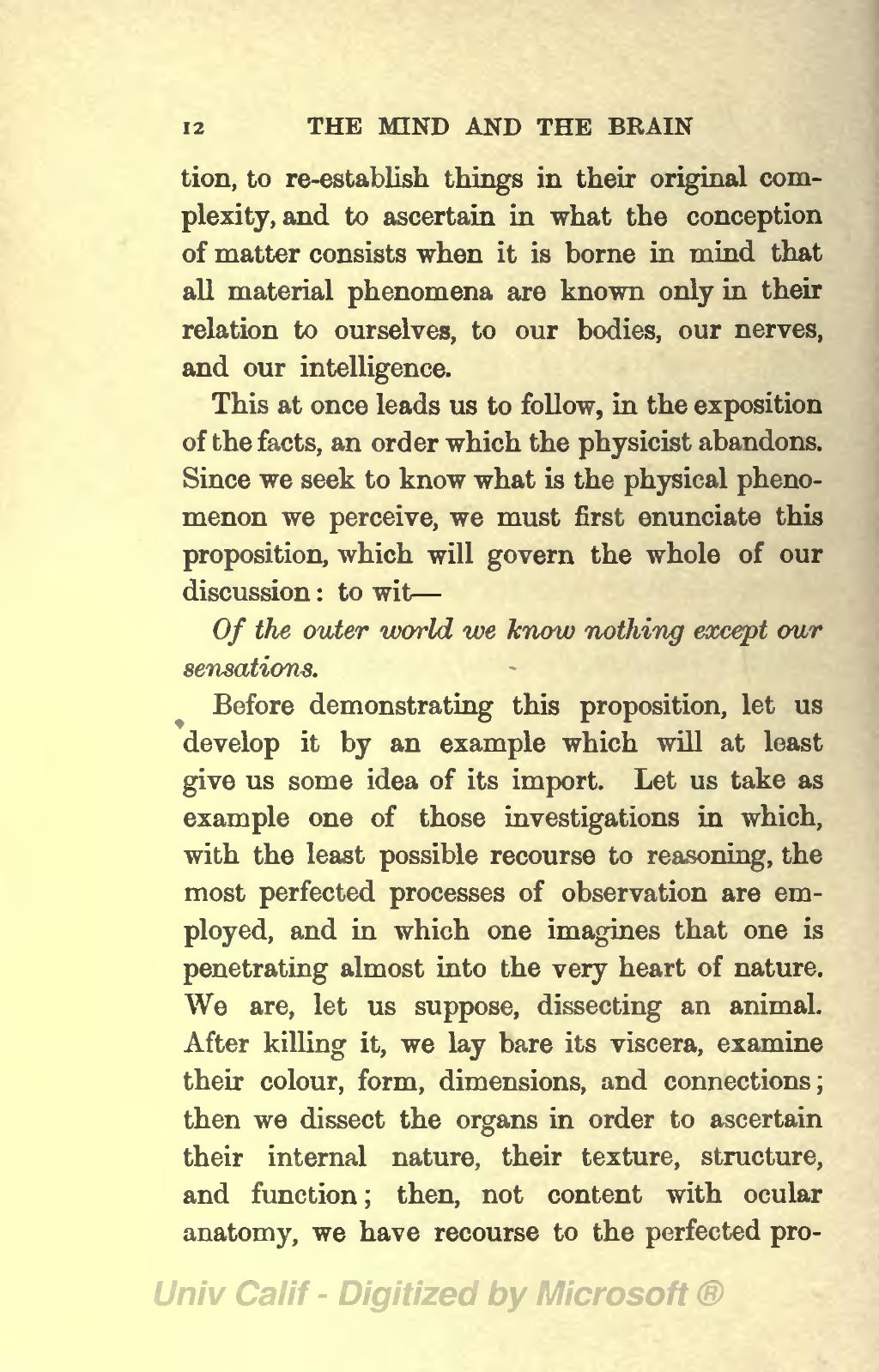tion, to re-establish things in their original complexity, and to ascertain in what the conception of matter consists when it is borne in mind that all material phenomena are known only in their relation to ourselves, to our bodies, our nerves, and our intelligence.
This at once leads us to follow, in the exposition of the facts, an order which the physicist abandons. Since we seek to know what is the physical phenomenon we perceive, we must first enunciate this proposition, which will govern the whole of our discussion: to wit—
Of the outer world we know nothing except our sensations.
Before demonstrating this proposition, let us develop it by an example which will at least give us some idea of its import. Let us take as example one of those investigations in which, with the least possible recourse to reasoning, the most perfected processes of observation are employed, and in which one imagines that one is penetrating almost into the very heart of nature. We are, let us suppose, dissecting an animal. After killing it, we lay bare its viscera, examine their colour, form, dimensions, and connections; then we dissect the organs in order to ascertain their internal nature, their texture, structure, and function; then, not content with ocular anatomy, we have recourse to the perfected pro-
